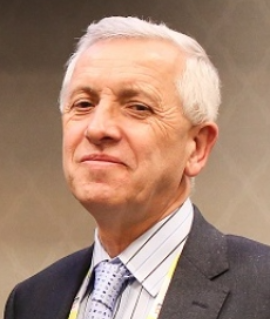Title : Chemical Engineering of Metal Single-Site Zeolites for Application in Heterogeneous Catalysis
Abstract:
The incorporation of metal ions into zeolites as isolated tetrahedral sites appears to be the important task because such sites are considered to be active sites of several catalytic processes. We have earlier shown that the incorporation of transition metal ions into vacant T-atom sites of framework zeolite is strongly favored when, in the first step, zeolite is dealuminated by treatment with nitric acid solution and then, in the second step, the incorporation of transition metal ions results in the chemical reaction between the cationic metal species of the precursor solution and the SiO-H groups of vacant T-atom sites created by dealumination of zeolite. During my keynote talk the chemical engineering of single-site zeolites with transition metal will be described and characterized by different physical techniques both at the macroscopic and molecular levels. The application of metal single-site zeolites in heterogeneous catalysis will be discussed. The post-synthesis method applied in this work allowed obtaining metal single-site zeolite catalysts active in different catalytic processes such as oxidative dehydrogenation of propane into propene, selective catalytic reduction of NOx to N2, production of 1,3-butadiene from renewable sources, including ethanol obtained from biomass. Their catalytic activity strongly depended on the speciation and amount of metal incorporated into zeolite structure as well as their acidity.
Audience take-away:
- The audience will be able to understand as control of preparation of catalyst systems.
- They will see that catalytic activity depend on dispersion of metal in the framework of zeolite.
- The researchers will be able, after my talk, do their own catalyst preparation using similar method.


